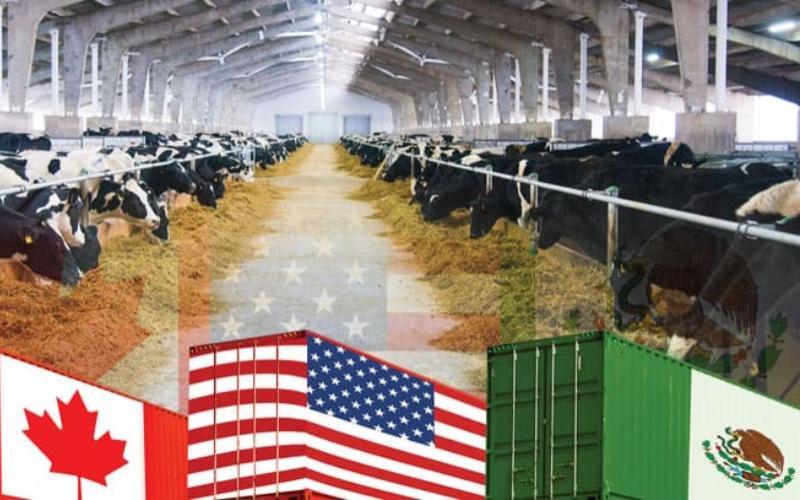T-MEC: The Dairy Industry Prepares for Review

The Mexican government has begun a comprehensive consultation with over 30 strategic sectors of its economy as part of preparations for the upcoming review of the USMCA (United States-Mexico-Canada Agreement), set for 2026. This initiative underscores the high priority the administration places on defending national interests in this vital trade agreement. For the agroindustry in general and the dairy sector in particular, active participation in these consultations is crucial, given that USMCA governs trade rules for key products, from corn and meat to dairy.
Mexico's livestock sector is at the center of negotiations, due to its strong interdependence with its northern partners. In the dairy realm, producers and industrialists aim to consolidate advancements made in the agreement, particularly in market access and resolving disputes over product origin. Discussions are expected to focus on sensitive areas such as milk import quotas and the protection of geographical indications, seeking a framework that encourages national production without hindering essential trade flows.
The consultation is not just a formality—it is an opportunity for the dairy sector and other agroindustry components to present key data and impact studies to support their positions. Analysts highlight that emphasis should be on the modernization of supply chains, food safety, and sustainability. Mexico will seek to maintain preferential access for its agricultural exports, while simultaneously attempting to shield its domestic market from practices deemed unfair, ensuring a market balance that benefits primary producers.
A highly sensitive point for Mexico will be the discussion on energy and labor policies, which indirectly impact the competitiveness of the entire agroindustry. Ensuring a stable and predictable legal framework is essential to attract and retain investment in dairy processing and other areas. The Ministry of Economy will use the gathered information from the 30 sectors to build a solid and unified negotiation strategy that protects USMCA achievements and mitigates risks of any unfavorable changes.









